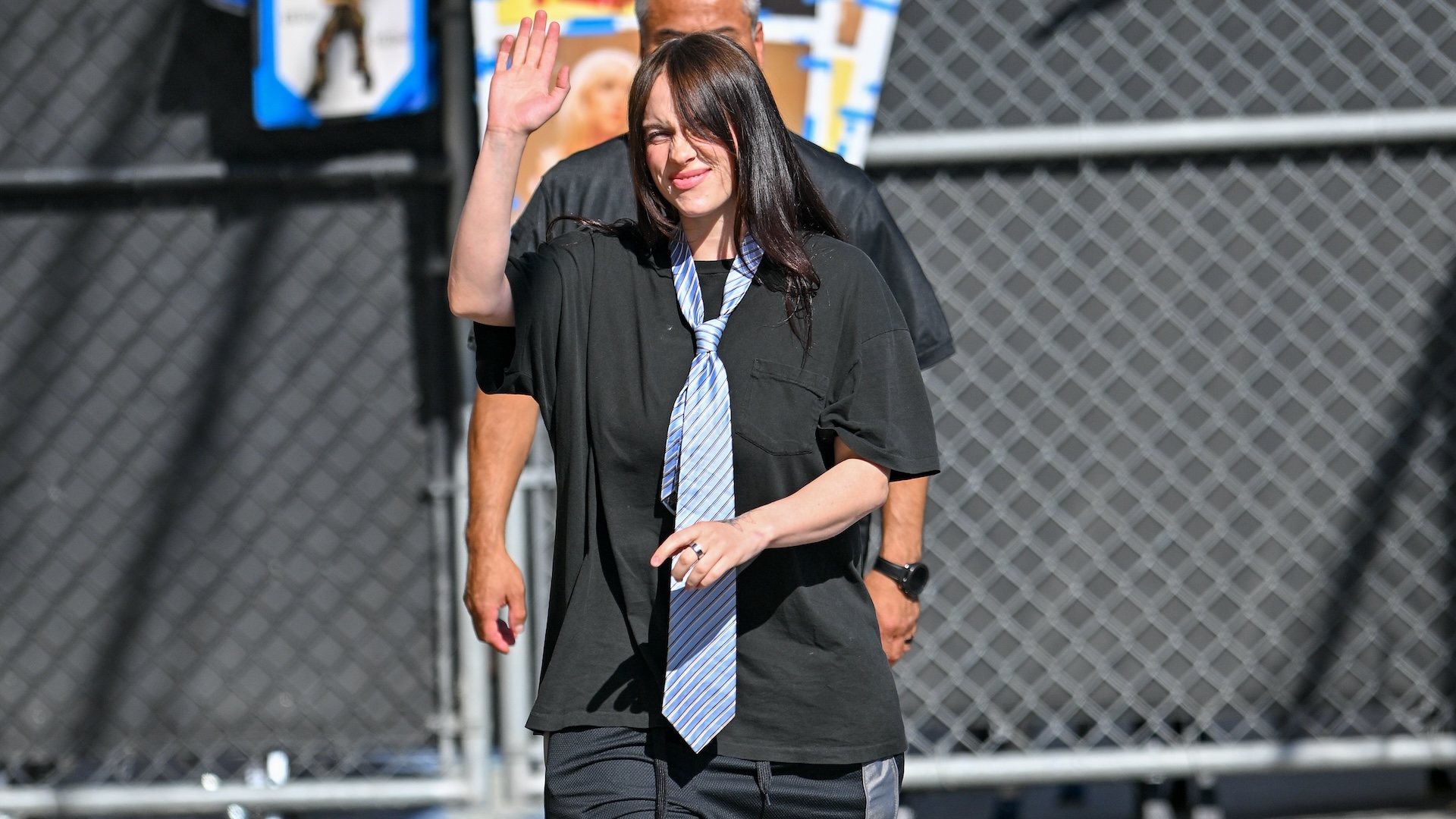In a candid revelation, Grammy-winning artist Billie Eilish has shed light on the early influences that contributed to her struggles with body image, citing the popular yet controversial fashion brand Brandy Melville as a significant factor. Known for her distinctive style and unapologetic individuality, Eilish’s comments offer a glimpse into the pressures faced by young women in the era of social media and fast fashion.
Here's ads banner inside a post
A Pop Star’s Candid Reflection
Eilish, who rose to global fame as a teenager with hits like Bad Guy and Ocean Eyes, has often been celebrated for challenging societal norms. Her signature oversized clothing became both a fashion statement and a shield against the relentless scrutiny of her appearance. However, in a recent interview, the 22-year-old artist opened up about the darker side of her journey, describing how brands like Brandy Melville shaped her early perceptions of beauty and body image.
“I used to shop at Brandy Melville all the time,” Eilish shared. “But looking back, it was a space that made me feel like I wasn’t enough, like my body wasn’t right for the clothes I wanted to wear.”
Here's ads banner inside a post
Brandy Melville: A Brand Under Fire
Brandy Melville, a European-born brand that gained massive popularity in the United States, markets itself as a one-size-fits-most label. Its aesthetic, characterized by minimalist designs and a California-chic vibe, has drawn millions of young shoppers. However, the brand’s controversial sizing—often fitting only a narrow range of body types—has sparked widespread criticism.
The company has also faced allegations of promoting exclusivity not just through its sizing but also in its marketing, which prominently features thin, white models. Critics argue that this creates a damaging standard for young girls, many of whom, like Eilish, look to these brands as trendsetters.
The Psychological Toll
Eilish’s experience is not unique. Studies show that exposure to narrow beauty standards, particularly during adolescence, can have lasting effects on self-esteem and body image. Social media amplifies this effect, as platforms like Instagram and TikTok often highlight curated images that conform to these ideals.
Here's ads banner inside a post

For Eilish, the impact of these pressures became more evident as her career progressed. “When I was younger, I didn’t realize how much these brands affected the way I saw myself,” she explained. “But now, looking back, I see how harmful it was to think that my body wasn’t good enough for the clothes I wanted to wear.”
Challenging the Norms
Despite these challenges, Eilish has become a powerful advocate for body positivity and self-acceptance. Her willingness to discuss her struggles publicly has resonated with fans worldwide. In 2021, she made headlines by gracing the cover of British Vogue in a corset and lingerie, a stark departure from her usual baggy attire. The shoot was met with mixed reactions, but Eilish defended her decision, calling it an expression of reclaiming her body and identity.
“I’ve always done what I wanted when it comes to how I present myself,” she said. “That’s the message I want to send to others: you don’t owe anyone your body, and you should feel free to express yourself however you like.”
A Larger Conversation
Eilish’s story is part of a broader cultural reckoning with the fashion industry’s role in perpetuating harmful standards. Brands like Victoria’s Secret have faced similar backlash in recent years, prompting a shift toward more inclusive sizing and diverse representation. While Brandy Melville has yet to significantly change its approach, Eilish’s comments may add pressure on the brand to reconsider its messaging and practices.

Experts in mental health and body image emphasize the importance of fostering environments that celebrate diversity in all forms. “When influential figures like Billie Eilish speak out, it opens the door for important conversations,” said Dr. Emily Hart, a psychologist specializing in adolescent development. “It’s crucial that young people see themselves represented in the media they consume and the brands they support.”
Looking Ahead
As Eilish continues to evolve both personally and professionally, her reflections serve as a reminder of the complex relationship between fashion, identity, and mental health. For fans, her transparency is a source of inspiration, highlighting the importance of self-awareness and growth.
“I’m not perfect, and I don’t have all the answers,” Eilish admitted. “But what I do know is that I’ve come a long way, and I hope my story helps someone else feel less alone.”
In a world where beauty standards remain a pervasive force, Eilish’s voice stands out as a beacon of authenticity and resilience. Whether the fashion industry will rise to the challenge of creating more inclusive spaces remains to be seen, but one thing is clear: the conversation has begun, and it’s not going away anytime soon.


